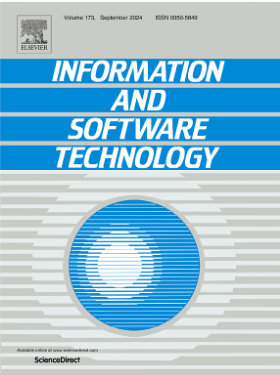Call for Papers for a Special Issue on Software and Society: Ethics, Equity, and Sustainability in Software
Journal’s special issue information page:: https://www.sciencedirect.com/journal/information-and-software-technology/about/call-for-papers#software-and-society-ethics-equity-and-sustainability-in-software
Software facilitates the vast majority of social, commercial, and governmental interactions in our society. The rules that were once implicit in person-to-person interactions or embedded in municipal bylaws are now codified into a set of instructions that govern how people can interact with organizations or with each other online. At the same time, software grassroots in the form of Free and Open Source Software (FLOSS) and civic technology initiatives are creating new ideas and alternatives. All these changes have introduced significant challenges that question established practices and norms, especially from the perspectives of ethics, equity, and sustainability. Examining the intersection of software and society is critical to informing the ethical, equitable, and sustainable use of information and software technology in the future.
This special issue aims to advance the research field of software and society by collecting high-quality research articles on the latest advances and emerging trends in the field.
Topics of interest include but are not limited to:
- Sustainable Transformation
- Digital Services and Systems
- Grassroots and Civic Development
- Diversity and Inclusion in Software Development
- Technology, Power, and Social Change
- Ethics, Equity in Software Ecosystems and Platforms
- Ethics in eHealth Software
- Equitable Cybersecurity
- Sustainable Development Goals and Software Technology
- Sustainability and Ethics in Software Production Education
- Legal Issues
- Decision-making in software engineering
- Other Emerging Topics
We also welcome submissions that address current issues in the field, such as distributed development practices, software development for citizen sensing platforms, participatory governance software systems, and ethics or bias in AI.
This special issue provides a unique opportunity for researchers and practitioners at the intersection of sustainability and software to share their insights, experiences, and perspectives on the unique challenges and latest advancements in ethics, equity and sustainability that we face in the field of information and software technology. We look forward to receiving your submissions and to publishing cutting-edge research that will inform the future relationship that our society will have with software technology.
Submission Process and Guidelines:
- The authors should use the Editorial Manager (EM) site for submitting their articles:https://www2.cloud.editorialmanager.com/infsof/default2.aspx
- Journal’s information for authors: https://www.sciencedirect.com/journal/information-and-software-technology/publish/guide-for-authors
- During the submission process, please select “VSI: Software and Society” for the "Article Type".
Guest editors:
- Antti Knutas, LUT University, Finland
- Siamak Farshidi, Wageningen University & Research, Netherlands
- Sonja Hyrynsalmi, LUT University, Finland
- Nicolas Jullien, IMT Atlantique, France
- Slinger Jansen, Utrecht University, Netherlands
Important Dates:
- Paper submission opening: September 30th, 2024
- Paper submission deadline: February 14th, 2025
